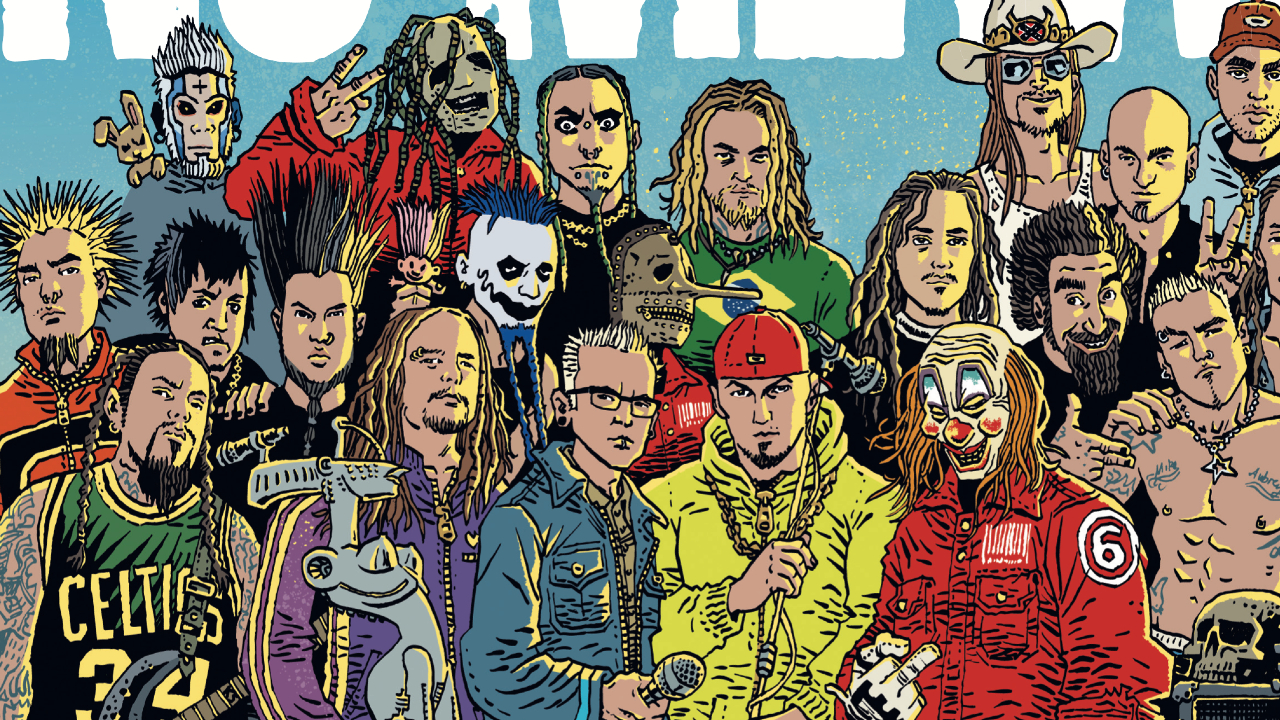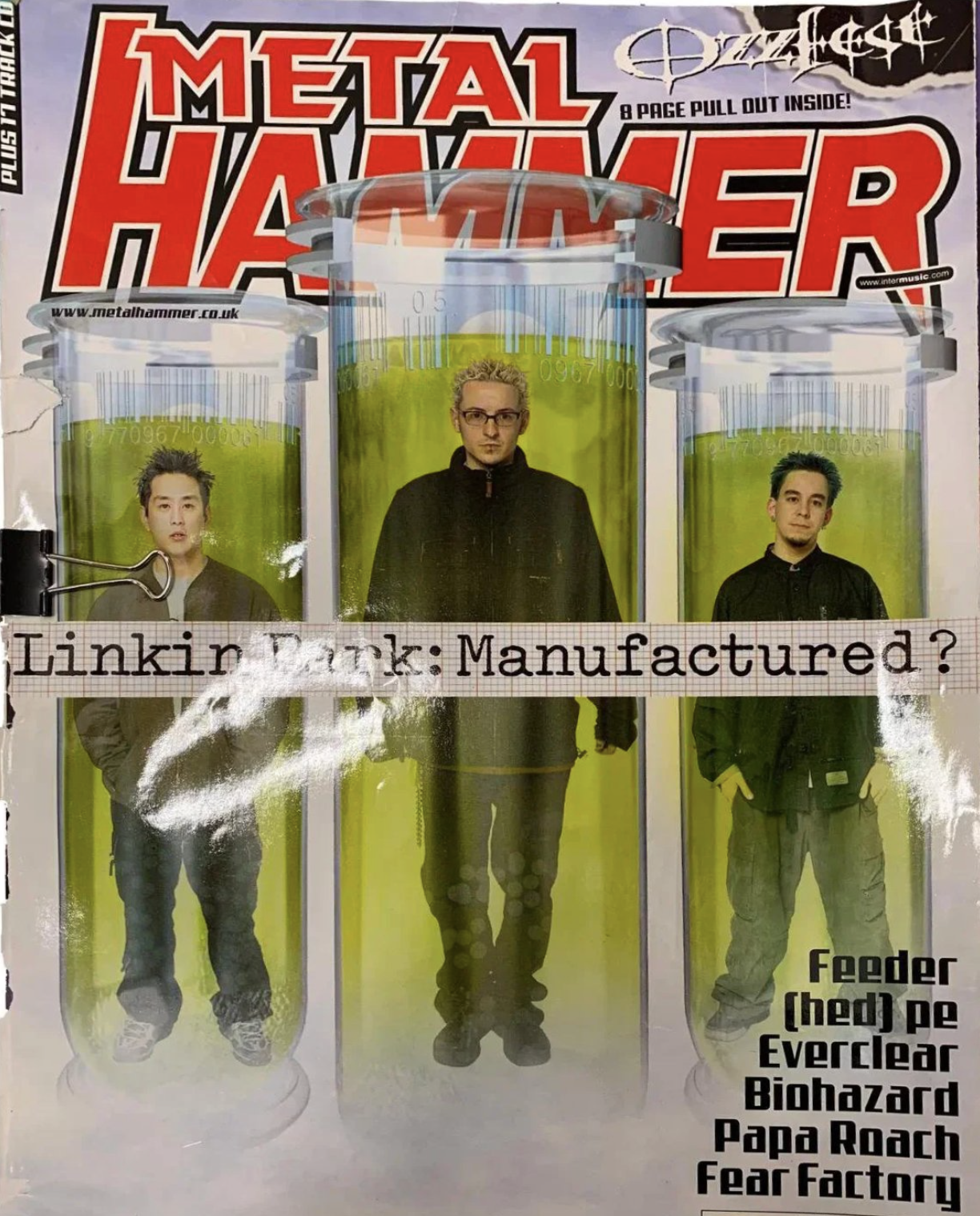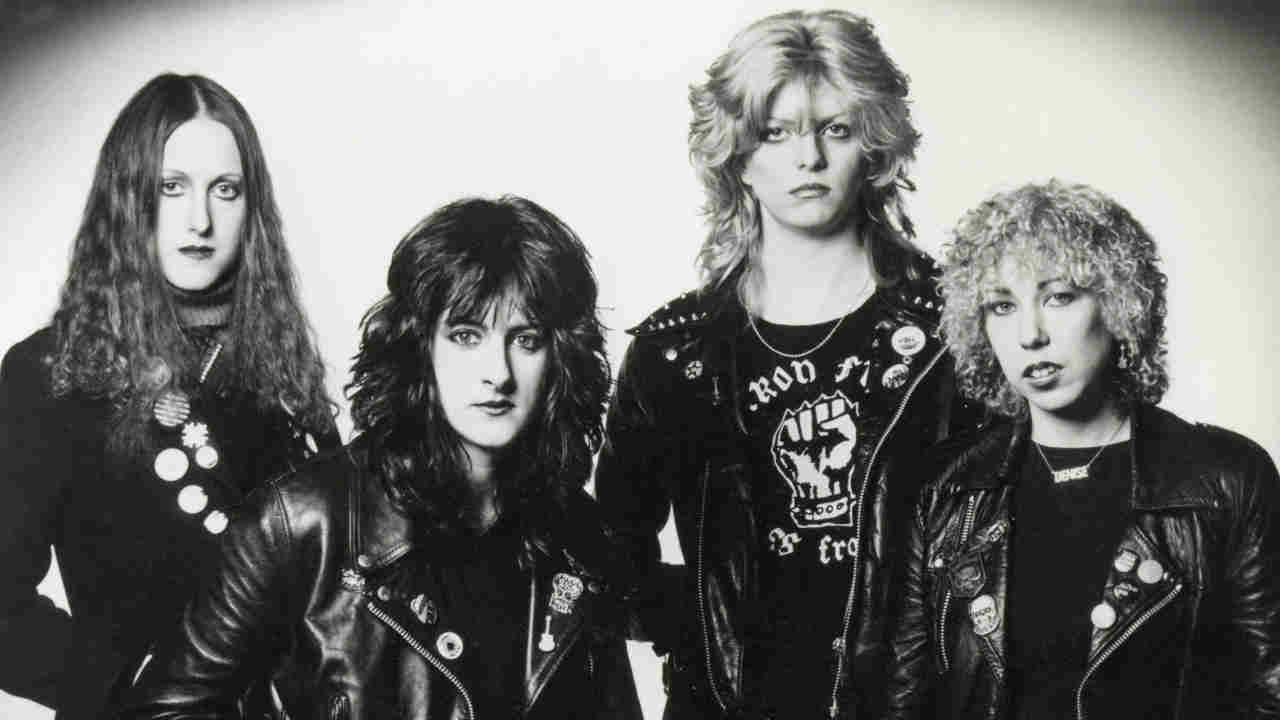As a millennial metalhead, I was laughed at for loving nu metal. In 2023 it's filling festivals and influencing more young bands than ever - and I couldn't be happier about it
Nu metal was derided as silly, overblown and undeserving of recognition in the wider metal scene. Admittedly, two of those things were kinda true, but it still ruled, OK?!

Limp Bizkit headlined the largest UK show in their history this past summer. Korn have just dropped a blockbuster collaboration with Adidas. Papa Roach's Last Resort recently got confirmed as one of the biggest rock songs of all time. The year, dear reader, is not 2000: it's 2023, and nu metal is somehow bigger than ever.
For a certain generation of metal fans (I'm trying to avoid a My Generation gag here), this all feels like vindication. It was Limp Bizkit's UK number one banger Rollin' that first turned me onto heavy music in the year 2000, its irresistible combo of hip hop swagger, massive riffs and daftly fun, earwormy lyrics dragging 13 year old me through a path that'd eventually lead to the likes of Slipknot, Fear Factory, Marilyn Manson, Metallica and Iron Maiden.
For those first few months after buying Rollin' on cassette, however (yes, I'm old), nu metal was truly my 'jam'. It seemed like it was everyone's jam, actually; as Bizkit, Linkin Park, Slipknot and System Of A Down all became household names alongside forebears like Korn and Deftones, nu metal was officially everywhere. You could barely glance through five spots on any mainstream singles chart without seeing an anthem by P.O.D. or Drowning Pool pop up. Rock-based music channels like Kerrang! and MTV 2 were completely dominated by baggy-jeaned, spiky-haired lads with their guitars around their knees. Fred Durst was living it up on stage with pop stars. It. Was. Everywhere.
And yet, the more I began to explore, embrace and enjoy other elements of the genre, the more I realised that nu metal wasn't very welcome within metal itself. Mention Limp Bizkit on any given metal messageboard and you'd be roundly laughed at. When Metal Hammer - the first music mag I began reading religiously, and one which I'd eventually serve as Editor - put Linkin Park on the cover in May 2001, they photoshopped Chester Bennington, Mike Shinoda and Joe Hahn into giant test tubes, accompanied by the tagline: 'Manufactured?'.

Nu metal, according to the gatekeepers, wasn't actually metal at all. According to them, it was a watered-down, cynical movement whose fanbase was populated by jocks and trend-chasers, and had no real, tangible connection to the world that gave us Black Sabbath, Slayer and Cannibal Corpse. As the early-00s boom died down and emo became the alternative movement of the moment, nu metal was treated by much of the metal world as an embarrassing fad, devoid of artistic merit and consigned to the dustbin of rock's history. The likes of Slipknot, Linkin Park and System Of A Down ironed out most of the nu metal elements of their sound; even scene originators Korn resented being called a nu metal band - "It had become a parody of itself. I don’t want to be defined like that," frontman Jonathan Davis told Metal Hammer last year.
By the time I joined Hammer as Online Editor in the early 2010s, nu metal was being regarded as a nostalgic curio at best, seemingly still spurred by the metal scene at large. While Korn and Slipknot were cover regulars for the magazine, we would often debate whether the likes of Deftones and Linkin Park warranted the same treatment; sure, they were filling arenas, but were our readers buying those tickets? Our Facebook posts about the Bizkits and Papa Roaches of the world would be met with distain from many of our followers. A special edition nu metal issue we put out in 2013 that I was delighted to write for received disappointing sales.
And yet, certain signs of nu metal's enduring appeal persisted. Catch yourself at any metal club night when Down With The Sickness dropped, and you'd witness the place go off. Any time Limp Bizkit were booked for a metal festival to the howling objections of commenters on social media, they'd draw one of the biggest crowds of the weekend. The pop culture footprint remained, but it seemed like the metal community was still stubbornly refusing to acknowledge nu metal's place in its own grand tapestry.
Sign up below to get the latest from Metal Hammer, plus exclusive special offers, direct to your inbox!
Then, a few things started happening at once. A generation of young bands clearly influenced by nu metal emerged - not millennials desperately trying to recapture their glory days, but artists in their teens and early twenties who missed the boat the first time around but had discovered it on their own terms. Bands like Tetrarch and Wargasm would proudly tell me of the impact the likes of Bizkit and Korn had on their lives and music. Even alt pop artists like Poppy and Rina Sawayama were dropping nu metal riffs.
In early 2021, Papa Roach released a 'reloaded' version of Last Resort featuring Jeris Johnson, prompted by the social media star paying homage to the track on TikTok a few months earlier. It was a bit pants, to be honest, but still! People were talking about Last Resort again! And they weren't just nostalgic 30-somethings like me! The cover racked up a cool 54 million streams on Spotify. Later that year, Limp Bizkit played a triumphant set at Lollapalooza that received more widespread coverage than anything they'd done in a decade. Not too long after, Korn released their most shamefully, straight-up nu metal album for years, Requiem, Jonathan Davis scat included.
Fast forward another year or so and nu metal is everywhere again. Baggy jeans and wallet chains are on sale in high street fashion stores. Sick New World is one of the most anticipated festivals of 2024 following its blockbuster, sell-out first edition. Fred Durst is making cameos on debut albums by upcoming metal bands. Hell, even that nu metal special we did has taken on a life of its own; I've lost count of how many times I've recently seen its cover (atop this feature) pop up on nu metal fan pages and club night posters (where were all of you in 2013 etc). This is all no mere nostalgia trip: it's predominately being carried by young, alternative music fans who appreciate nu metal for its own merits, rather than whether it fits into some rigid set of rules for what 'proper' metal should sound like.
For a metalhead who once felt pressured to hide his love of nu metal, it's a wonderful thing to see. I never understood why Limp Bizkit were deemed 'silly', but Manowar were to be taken seriously. Great music is great music, and besides, I'll take the raw, emotional honesty of Jonathan Davis and Chester Bennington over fantastical heavy metal drama any day (and that's coming from a man who considers Iron Maiden his favourite metal band).
Serena Cherry, frontwoman of UK metallers Svalbard, whose majestic, emotionally-charged, blackened noise seems a world away from the braggadocios swagger of Adema and Taproot, summed it all up beautifully when she talked about nu metal to us earlier this year: "Nu metal was really good at teaching me how to deal with negative emotions and how to have an outlet for angst and rage and aggression," she explained. "It made me who I am. It’s a beautiful scar on the metal world.”
It's a scar that has apparently been reopened. And I for one am loving it.

Merlin was promoted to Executive Editor of Louder in early 2022, following over ten years working at Metal Hammer. While there, he served as Online Editor and Deputy Editor, before being promoted to Editor in 2016. Before joining Metal Hammer, Merlin worked as Associate Editor at Terrorizer Magazine and has written for Classic Rock, Rock Sound, eFestivals and others. Across his career he has interviewed legends including Ozzy Osbourne, Lemmy, Metallica, Iron Maiden (including getting a trip on Ed Force One courtesy of Bruce Dickinson), Guns N' Roses, KISS, Slipknot, System Of A Down and Meat Loaf. He has also presented and produced the Metal Hammer Podcast, presented the Metal Hammer Radio Show and is probably responsible for 90% of all nu metal-related content making it onto the site.
